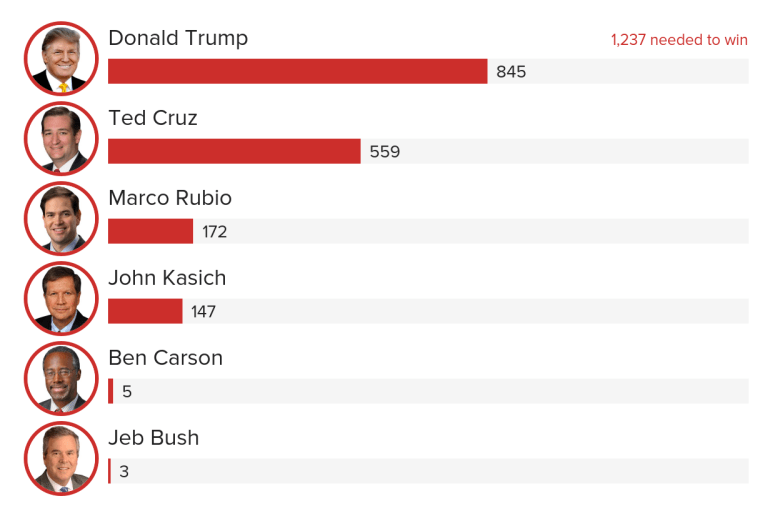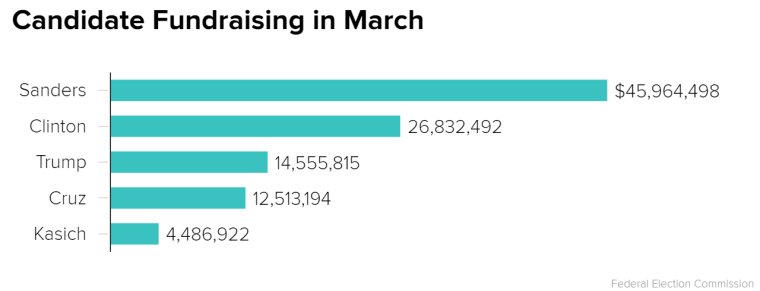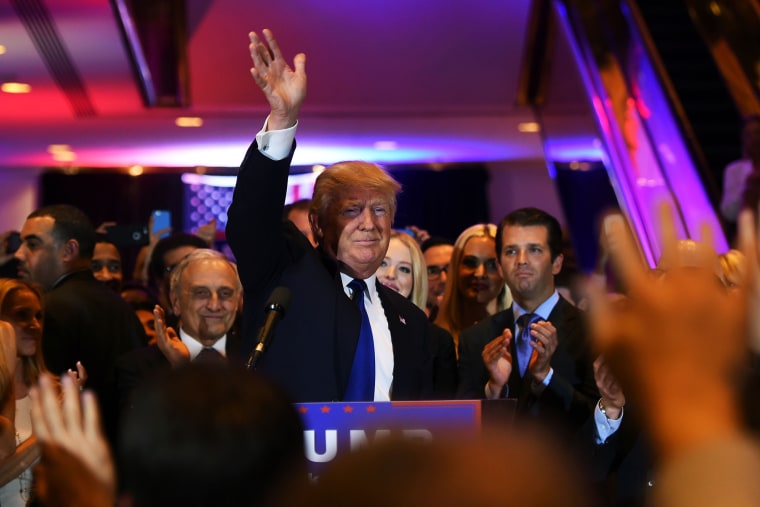First Read is a morning briefing from Meet the Press and the NBC Political Unit on the day's most important political stories and why they matter.
The importance of Pennsylvania and its 54 free-agent delegates
Next Tuesday will feature essentially two different Pennsylvania Republican primaries -- the one we see (Donald Trump vs. Ted Cruz vs. John Kasich), and the one we won't (the fight for the state's 54 free-agent delegates). Indeed, it's that second primary that very well could determine whether or not Trump reaches the 1,237 delegates needed to win the GOP presidential nomination. Here's how Pennsylvania's delegate allocation works: 17 delegates are awarded to next week's Republican winner, and Trump is leading his GOP rivals by double digits in the Keystone State, according to a new Franklin & Marshall poll. But the state's other 54 delegates will be elected on the ballot -- with no clue to voters whom they might support at the convention -- and they will act as free agents heading into July's GOP convention. How big of a deal is Pennsylvania's delegate-allocation system? As the New York Times' Nate Cohn has estimated, Trump would be favored to win about 60 delegates if it were winner-take-all by congressional district, or 40 delegates if they were awarded proportionally. But the most he can get from a big win (at least on Primary Day) is 17 delegates. And how many of those 54 unbound delegates Trump can convince to vote for him could be the difference between reaching 1,237 on that first convention ballot and missing it.
Good news, bad news for Trump when it comes to these 54 delegates
The good news for Trump is that he has a real chance to win over a solid number of these 54 unbound delegates. Earlier this month, the Pittsburgh Tribune-Reviewreached out to the 162 candidates running to be an unbound delegate, and the newspaper found that a good chunk of them said they'd vote for whoever wins the congressional district. Also, NBC's Leigh Ann Caldwell reports that Trump is arguably running the most active campaign for these delegates. "John Schnaedter, chair of the Allegheny Republican Party in southwest Pennsylvania, said that delegate contact from the Trump team began early. 'None of the campaigns have reached out to us other than Trump's,' he said." The bad news for Trump is that these people could change their mind. And the Cruz campaign - which has had plenty of success in the delegate battles in Colorado and Wyoming - is turning its focus to the Pennsylvania unbound. Per NBC's Vaughn Hillyard, Hallie Jackson, and Frank Thorp, "The Cruz campaign is pushing a slate of Cruz-loyalists for 26 of the 54 unbound slots up for the taking. It says others eligible on the ballot to become delegates, particularly longtime state activists able to win on their name alone, have committed to Cruz as well. Cruz has personally met with several of the potential delegates." Here's where the overall GOP delegate race stands:
Trump holds a 286-delegate lead over Cruz

Trump needs to win 57% of remaining delegates to reach 1237 magic number
Cruz needs to win 98% of remaining delegates to reach 1237 magic number
Kasich needs to win 158% of remaining delegates to reach 1237 magic number
What does Bernie want?
Turning to the Democratic race, our math says that the earliest Hillary Clinton crosses the 2,383 delegates (pledged + superdelegates) needed to clinch the Dem nomination is May 17. And the latest -- even if she loses key contests -- will be June 7. Given that math, the question is no longer who will win the Democratic nomination; rather, it's what he wants. The Washington Post put it well: "Hillary Clinton's victory in the New York primary Tuesday has brought Sen. Bernie Sanders one step closer to a series of difficult decisions that can be summed up in one simple question: What does Bernie want? How he answers that question will have a direct bearing on how united Democrats will be heading into the fall campaign — and whether Sanders will be able to leverage his success this year into lasting power and influence." More from MSNBC's Alex Seitz-Wald: "Does [Sanders] set a do-whatever-it-takes course to actually win the Democratic nomination? Or does he return to the message campaign his long-shot White House bid was originally seen as?" Here's the Democratic delegate math:
In pledged delegates, Clinton currently holds a lead of 272 delegates with Washington delegates to still be allocated
- Clinton 1423 (55%)
- Sanders 1151 (45%)
Clinton must win 41% of remaining pledged delegates to get a majority in pledged delegates
Sanders must win 59% of remaining pledged delegates to get a majority in pledged delegates
In overall delegates (pledged + super), Clinton holds an overall lead of 696 delegates

Clinton must win 29% of remaining delegates to reach 2383 magic number
Sanders must win 71% of remaining delegates to reach 2383 magic number

